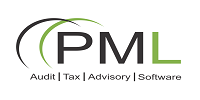Audit Nigeria
In a conscious effort to enhance the oversight function of the management, the internal audit reporting system of an entity, among others, should not be underplayed. Successful enterprises in the corporate world are beginning to embrace the big picture of their business functions and processes through detailed attention towards ensuring sound internal reporting system. This is feasible with the deployment a sound internal audit reporting solution. With LASER Audit Reporting System (LARS),your business takes the right bearing towards efficient and effective management of your internal audit processes from planning to reporting. LARS internal audit solution provides you with the following features:
- Provides real-time completion status of ongoing audits at all locations and business units of your organization
- Centrally manages audit planning, audit programs, work papers and fieldwork and coordinate information among auditors, auditees and Management at all levels of organization;
- Puts you in control of the complete audit lifecycle by establishing a systematic, disciplined and a uniform process for internal audit management;
- Aligns your internal audit processes with the Institute of Internal Auditors (IIA) standards, thereby enabling you to plan your annual audits, schedule it, view audit programs, create work papers and findings and track ongoing observations; and
- Keeps all your audit files in one place and easily share them with auditors and auditees.
At PML Professional Services, we can help you deploy LARS for your internal audit function. The choice of LARS for your internal audit reporting gives you unequaled edge and pace in achieving much more.


